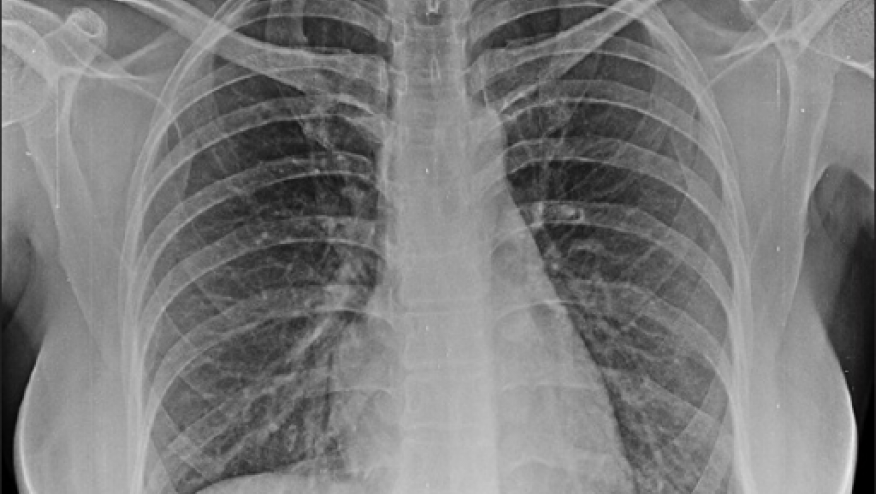Best of 2023: ACR Guidelines for Interstitial Lung Disease in Patients with Rheumatic Conditions Save

Editor's note: this article originally appeared August 24, 2023, and is being shared again as a Best of 2023. Enjoy!
The American College of Rheumatology (ACR) released summaries of two new guidelines for the Screening and Monitoring of Interstitial Lung Disease in People with Systemic Autoimmune Rheumatic Disease and for the Treatment of Interstitial Lung Disease in People with Systemic Autoimmune Rheumatic Diseases (SARDs). The guideline summaries provide recommendations for screening, monitoring, and treating patients with rheumatic conditions like rheumatoid arthritis, systemic sclerosis (SSc), and idiopathic inflammatory myopathies (IIM) who may be at risk of interstitial lung disease (ILD) development.
“Interstitial lung disease is a major cause of morbidity and mortality across several systemic autoimmune rheumatic diseases,” said Sindhu R. Johnson, MD, Ph.D., lead author on the guidelines and director of the University of Toronto’s clinical epidemiology & healthcare research program. “Guidance was needed for which tests to use for screening and monitoring this particular disease.”
A few recommendations from the guidelines include:
- A conditional recommendation to screen patients at high risk of ILD with HRCT chest, PFTs, or both
- A conditional recommendation to monitor ILD progression with PFTs and/or HRCT chest, albeit with different frequency.
- A conditional recommendation to monitor with ambulatory desaturation testing.
- A conditional recommendation against screening and monitoring with a 6-minute walk test distance (6MWD), chest radiography, and bronchoscopy.
- For people with SARD-ILD other than SSc-ILD, we conditionally recommend glucocorticoids as a short-term, first-line ILD treatment.
- A strong recommendation against glucocorticoids as a first-line ILD treatment for people with systemic sclerosis-associated ILD.
- A conditional recommendation for use of mycophenolate, rituximab, cyclophosphamide, and azathioprine as first-line ILD treatment options.
- A conditional recommendation against using leflunomide, methotrexate, TNF inhibitors, and abatacept as first-line ILD treatment options.
- For people with SARD-ILD progression despite first ILD treatment, it is conditionally recommended to use mycophenolate, rituximab, cyclophosphamide, and nintedanib as treatment options.
- For people with Sjogren’s-ILD and IIM-ILD progression despite first ILD treatment, a conditional recommendation against using tocilizumab as a treatment option.
“In those with systemic sclerosis-ILD, we strongly recommend against using glucocorticoids as a first-line ILD therapy or after ILD progression because glucocorticoids confer an increased risk of scleroderma renal crisis,” said Johnson. “Given the moderate certainty of the evidence for harm and low certainty of the evidence for benefit, we voted strongly against using this treatment for patients with systemic sclerosis-ILD.”
These new recommendations will provide guidance for clinicians on the screening, monitoring, and use of a wide range of treatments for patients with rheumatic diseases. The ACR developed these with the best available evidence and consensus across a range of expert opinions and incorporated patient values and preferences. These guidelines may reduce regional variation in patient care and may be used for patient advocacy.
“We know that early detection and hastened referral to care, in collaboration with pulmonology, is critical for the best patient outcomes,” said Sonye K. Danoff, MD, Ph.D., guideline author, pulmonologist and director of the Interstitial Lung Disease/ Pulmonary Fibrosis program at Johns Hopkins University School of Medicine. “Because symptoms of ILD (cough, shortness of breath, fatigue) can be subtle or result from other common diseases, the diagnosis of ILD can be delayed. Increasing awareness of the groups at highest risk for developing ILD and implementing appropriate screening and treatment practices should have long-term benefits.”
Full manuscripts have been submitted for journal peer review. Both are anticipated to be published in rheumatology journals by early 2024.
View the complete summaries of the guideline recommendations here.









If you are a health practitioner, you may Login/Register to comment.
Due to the nature of these comment forums, only health practitioners are allowed to comment at this time.